Culture in Crisis
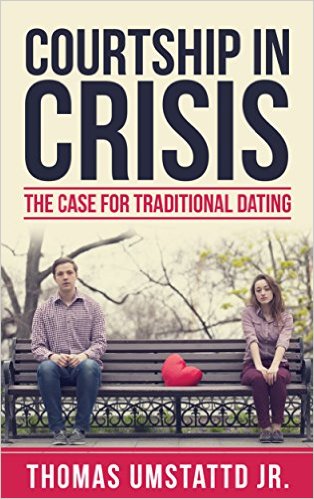
I read Thomas’s original blog post with interest, which quickly turned to indignation. Why is this guy throwing the baby out with the bathwater? I thought. While I’ve certainly seen some imbalances in courtship as it has been practiced in the last twenty years, it seemed unfair to equate all the excesses and abuses and failings of modern courtship with the practice itself. So I disagreed with Thomas’s initial recommendations and thought they weren’t nuanced enough.
But months later, a request arrived from one of my own readers: would I review Courtship in Crisis if he provided a copy of the book? I downloaded it, very curious to see what Thomas would come up with in a book-length discussion.
The Crisis
The book’s focus is sociological, not personal or theological. It’s based on significant scientific and historical research, with the goal of strengthening our society through the vital institution of marriage.
We have a crisis on our hands, Thomas says: fewer and fewer people are finding their way to the altar. And this marriage crisis is culture-wide. So while he does address the flaws in Modern Courtship, he critiques Modern Dating, too. Within Modern Courtship, the lack of a clear definition of courtship itself may be part of the crisis. (Thomas defines it as a practice in which every step happens “for the purpose of marriage.”) Meanwhile, within Modern Dating, it’s easy to assume that since there’s no one way to find a spouse, there should be no method at all.
In my words, we’ve all lost the script. (Non-Christians and Christians, courtship and dating advocates alike!)
What’s the solution? Well, Thomas has no desire to hand out yet another detailed relationship how-to. This book is simply meant to provide a manifesto for choosing a more practical way to get to marriage.
Traditional Dating
Modern Courtship is not universally flawed, he says. (It works for some: perhaps twenty percent, hardly enough to keep society afloat.) Thomas believes that Traditional Dating is the most practical and best fit for our culture. Now you’re asking: What is Traditional Dating? Well, it’s the method used by Thomas’s grandparents and many others in the “Greatest Generation.”
As relationship practices developed throughout recent history, the concept of going on dates went from platonic to exclusive. Premature exclusivity eventually led to a sense of ownership, “playing married,” and then the outright promiscuity common in Modern Dating.
In Traditional Dating, going on platonic dates with multiple people is part of the discernment process that eventually leads to a relationship stage our grandparents called “Going steady.”
According to Thomas, the script is simple and practical. The steps go like this:
- Platonic discernment: Am I interested?
- Going steady: Are we a good match?
- Engagement
- Marriage
There are only two common-sense rules:
- Don’t go steady too soon.
- Don’t stay out too late.
Refusing to stay out too late can enable you to make wise decisions for the future before your willpower is depleted. It can also mean that scarcity (of time with the girl) increases the guy’s attraction to her.
Going steady too soon, he says, can blind you to a person’s faults, make you feel that he or she is your only option, delay or prevent you from breaking up when you should, and (through lack of competition) tempt the guy to stop trying to win the girl’s heart.
Thomas feels that the initial lack of exclusivity helps guard hearts, keeps people from getting too serious too quickly, and reduces temptation. He sees Traditional Dating as providing less awkwardness, intimidation, and less heartbreak, more matchmaking, fun, romance, and more marriages.
But what’s so bad about Modern Courtship?
In a nutshell: premature exclusivity. According to Thomas, it amplifies awkwardness, pressure, temptation, and rejection.
One of the strengths of Courtship in Crisis is the fact that it provides a much-needed and thorough critique of recent practices, with the understanding that there are multiple courtship-practicing communities, each with their own courtship definitions and customs. Thomas presents the pitfalls of courtship, module by module, allowing each community or family to assess its own unique assortment of courtship practices.
Consider the following possibilities: that courtship only reduces pain if you marry the first person you court, that you don’t know what you’re looking for in a spouse (presumably from not interacting with others of the opposite sex), the difficulty of getting to know someone without one-on-one time, the possibility of giving your heart to someone you don’t know well, lack of accountability if the young man avoids talking to the girl’s father about his temptations, the fact that purity rules don’t change your heart, the possibility of concluding, “If purity is something I can lose, then once I lose it, why try anymore?”
One of his concerns is a lack of differentiation between biblical practices, principles, and commands. Thomas writes, “Modern Courtship calls those who break its man-made laws ‘sinners.’ This leads to shame more than it leads to purity.” He points instead at the gift of conviction, which comes from God Himself, and asks: Wouldn’t it be more motivating to turn our focus away from the dumpster (temptation and sin) in favor of the banquet (God’s good gift of marital intimacy)? Thomas believes that it is unbiblical to delay marriage for some undefined “readiness” when marriage is actually God’s remedy for temptation.
What’s right with Courtship in Crisis?
Like Thomas, I believe that unreasonable definitions of “readiness” can unhealthily delay marriage. He doesn’t define readiness, but I would say that while significant spiritual and emotional maturity is indispensable, it’s fine and perhaps even beneficial for couples to begin with “starter homes” and “starter jobs” rather than delaying marriage into one’s late twenties or even thirties for some unnecessary level of affluence.
As Thomas mentions, it is absolutely vital to realize that our purity comes from Jesus. Whether you’ve been redeemed out of that sin, or kept from it, you are the recipient of a miracle. I’ve observed that shame is encoded into the human heart, and that even sexual temptation, let alone sin, can stir up crippling doses of shame. You can avoid significant confusion, heartache, and sin by keeping in mind that purity is a day-by-day gift, and not something we’re born with that can be “lost.”
Thomas notes that ,“A wedge of insecurity seems to separate the men from the women.” (I’ve seen this at work in the biblically-focused Christian dating culture as well.) Happily, he provides some tips for developing more courage, beginning with naming your fear and countering your thinking with God’s description of you, and going on to specific practical ways of developing that courage like a previously unused muscle.
Thomas also refers very colorfully to young women who wear “emotional burkas” – women who unconsciously send out “go away” vibes that honorable men respect. I think this is a very helpful observation for a girl who wonders why she is only approached by what she might term “weirdos” and “creeps.” They are, in fact, the only ones unprincipled enough to ignore her unspoken message: “I’m unavailable.”
What’s wrong with Courtship in Crisis?
When Thomas refers to girls who wear “emotional burkas,” he is addressing a real problem, but I believe it is very unwise to recommend a little flirting as the remedy. I have two reasons for this caution. First, it’s wise to examine your own definition of flirting, because the downward pull of shame can sometimes operate on an untrained conscience, even when you haven’t actually done anything wrong. And second, actual flirting, as innocently as it may be meant, can lead to unexpected temptation.
In place of flirting, I recommend an awareness that you have spiritual gifts you have been commanded to share with the Body of Christ. A habitual joyful, unselfish focus on blessing others is the way God kindly rescued me when I was a cripplingly shy twenty-something. In fact, I would suggest that in shutting ourselves off from the opposite gender, we may be going against a biblical principle, since Paul recognized the importance of relating as siblings “in all purity,” and yet told young Timothy to “encourage” the younger women, presumably his peers. Instead, let’s become known for being wisely friendly and open with everyone.
I think this is a much better cure for the initial awkwardness that often accompanies courtship than teens practicing their one-on-one skills in “platonic dates,” as Thomas recommends. Having been “on the market” for a number of years, I can testify to the exhaustion of having one’s heart on hold, and the gift it is to experience a season of “undistracted devotion.” Don’t teens have enough to handle in focusing on schoolwork and maturing their identity in Christ?
However, it may very well be that for mature singles, a few getting-to-know you dates may be a useful addition to courtship practice, as a way to discern whether they should embark on a more purposeful relationship. Responding to this kind of opportunity has been a way for me to practice stewardship as I wait for God to provide the good gift of marriage.
While I agree that premature exclusivity is a real concern, I think Thomas lays too much of the blame for temptation on the commitment inherent in many courtships, modern dating relationships, and even engagements. I think a better term is “possessiveness,” an attitude that must – and can! –be combated prior to marriage.
While I agree that it’s better to focus on the feast (of marital intimacy) than the dumpster (sin) in countering temptation, the best focus is on God Himself. Not in the sense that “Jesus is my boyfriend,” but out of gratefulness for His gift of purity, out of genuine trust in His care, whether through the good gift of singleness or marriage – and, quite simply, out of a desire to make Him smile.
One of Thomas’s main concerns is overly critical and controlling parents. These parents can discourage young men to the extent that they marry outside the courtship community – leaving many young women without mates. I sympathize with the pain some young men have experienced in connection with “dragon-guarded daughters.” If Thomas were to advise his own friends on the topic, that would be one thing. However, in recommending that young men avoid any adult woman with an involved father — within a book that’s intended to change an entire culture — I think Thomas unnecessarily throws those same young women under the bus.
While the problem of controlling parents is very real in some families, I think Thomas also fails to adequately acknowledge the existence – and importance – of a mutually trusting, healthy relationship between parents and their adult daughters. I am concerned that his book may encourage some young adults to spurn helpful and perhaps even vital advice. As many of the comments on his original post show, very convincing predators are a real concern, even within the Christian community. Parents would do well to examine the level of trust they have for their children’s cautions about a potential mates. Young people should do the same for their parents.
(You should definitely protest if you are being pressured into an unsafe relationship. But it’s quite another thing to unnecessarily throw away one of your best opportunities to practice healthy communication and respect in preparation for marriage, not to mention one of your best sources of coaching and protection — namely, your relationship with your parents).
I would highly recommend that courtship-minded parents prayerfully read this book. Discerning young adults might benefit, if they don’t mind the frank discussion of promiscuity in Modern Dating. As for teens, Thomas himself says on his blog, “I am talking about relationships between adults. If you are 14, you should talk to your parents about these posts and let them set me straight.”
Continuing the Conversation
In writing Courtship in Crisis, Thomas Umstattd is continuing a conversation begun by others. Joshua Harris responded to Elisabeth Elliot’s Passion and Purity with I Kissed Dating Goodbye, a book Thomas describes as “eighty percent about making Jesus Lord of your life.” Harris’s Boy Meets Girl suggested that Modern Courtship is for the purpose of discerning marriage, much like Thomas’s model of “going steady.” Eric and Leslie Ludy encouraged us that God is trustworthy in When God Writes Your Love Story, and Elisabeth Elliot’s Quest for Love gave us some real-life examples of how that might play out.
While their underlying principles are important to consider, we cannot land on any one of these books as the one to follow. Nor do I think a single book is sufficient to change a family’s entire set of convictions about romantic relationships. But Courtship in Crisis is, in my opinion, a vital contribution to the conversation about a wise and godly path to marriage. Thomas asks some questions we must – and can answer. But I don’t think that he himself provides all the conclusions we need.
Here are the questions that I think Thomas leaves unanswered:
Why should a courtship system reflect your culture?
Did you have sufficient reason to choose this particular era (Traditional Dating)?
What if it wasn’t the method but the character of the people that made it successful?
Since you’ve noted rightly that sin is in every generation, and that, “Any situation that involves people will include their imperfections,” what if it is truly our culture that is in crisis (from within and without) and not Modern Courtship itself?
What if we change the people instead of the system?
What about me?
I’m really glad that I read (and reread) this book.
As a single woman in my late thirties, with a lifelong involvement in the courtship community, I am very aware of our marriage crisis. At the same time, having spent seven years writing for the biblical dating community, I’m not new to the idea (which has many similarities to Thomas’s model of Traditional Dating). With this experience (and having lived abroad for nearly one-fourth of my life), I can testify that the marriage crisis is not only society-wide in America, but extends into the international church community as well.
So while I don’t think that the pitfalls of Modern Courtship are in fact unique to the courtship community, I am very grateful that Thomas has addressed them. Unlike him, I believe that Modern Courtship can be redeemed, and I’m grateful for all the practical tools he provides for doing so.
Related Post: Modern Courtship and Dating
Photography: JenniMarie Photography

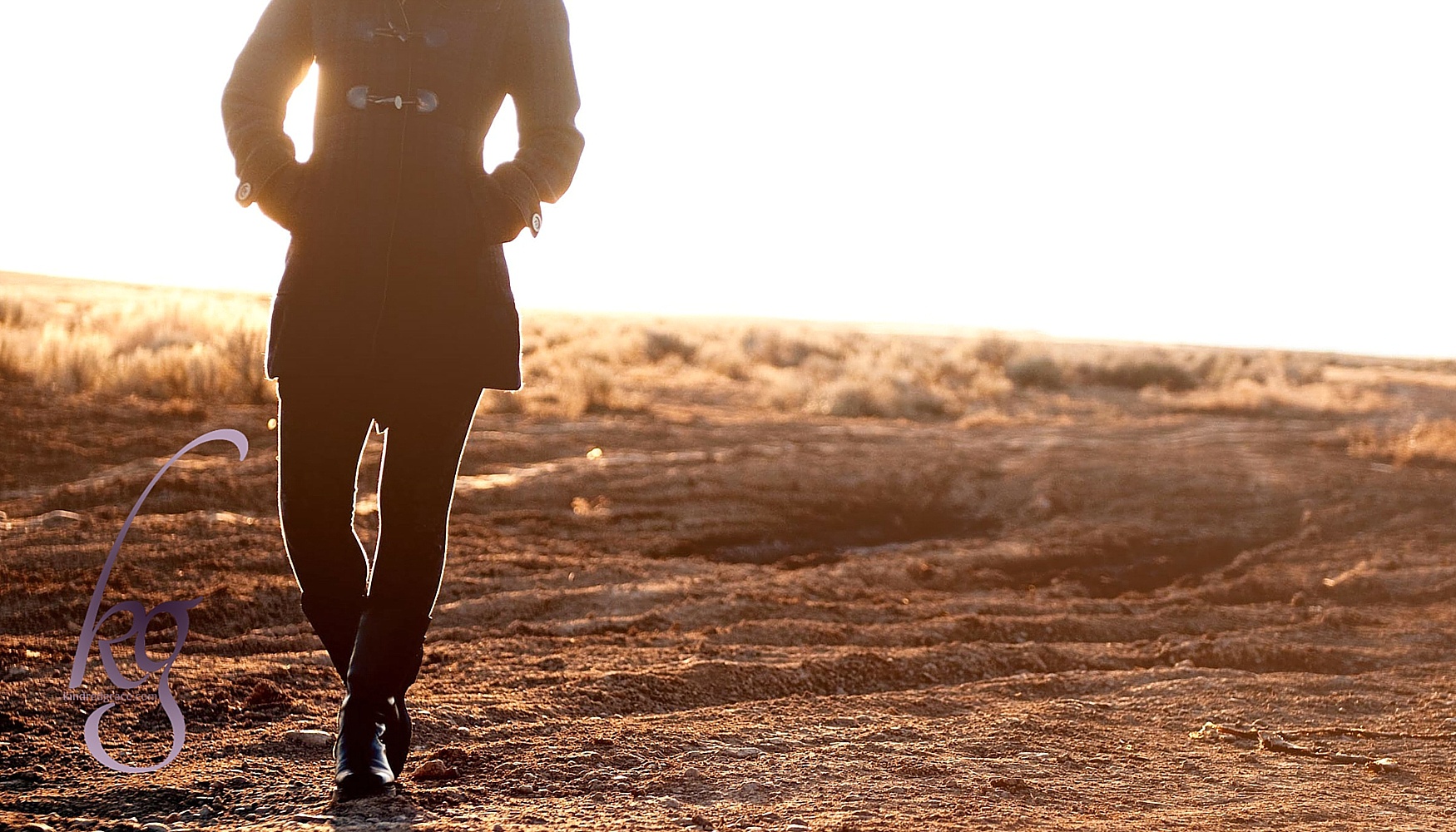
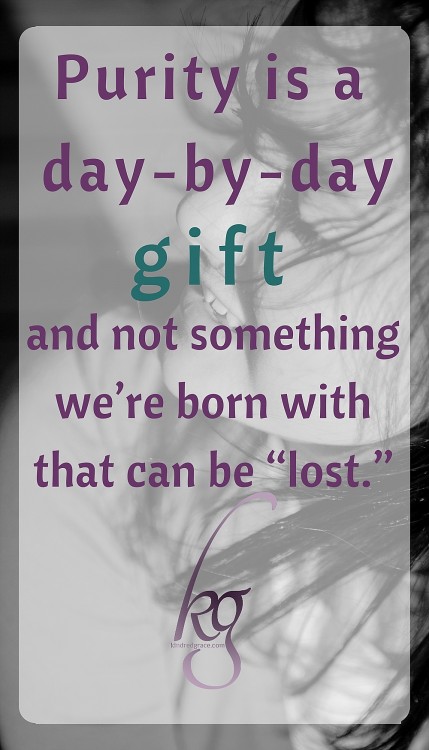
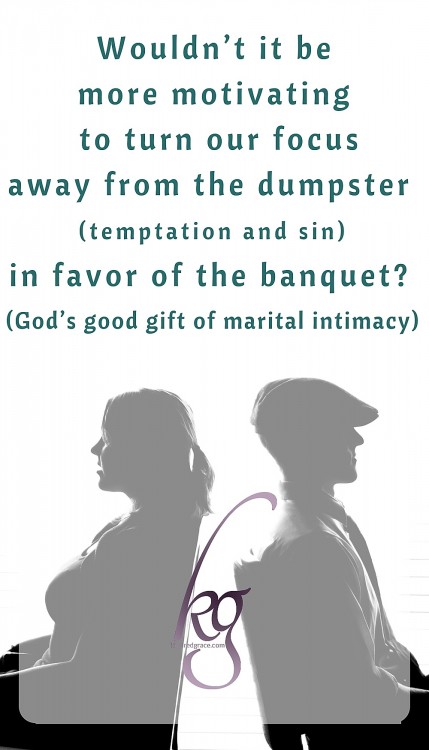
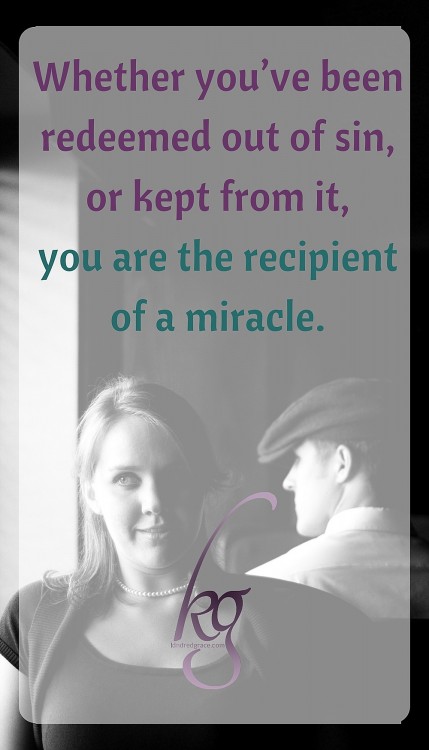
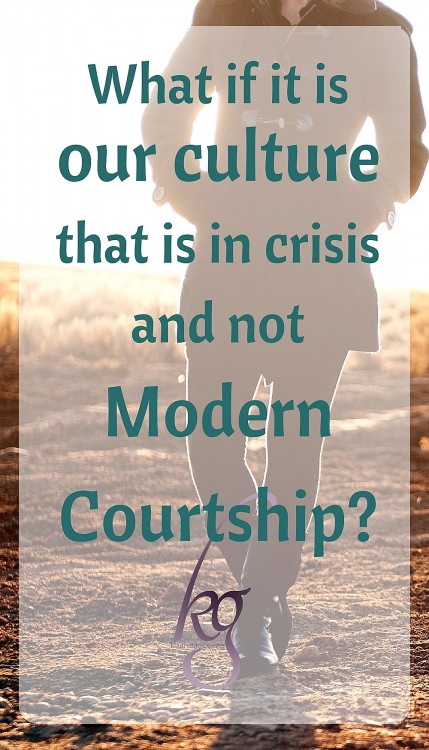
Thank you, thank you, thank you! 🙂 You have shared here some of the concerns I’ve been contemplating and talking over with my parents, and even had some things here I hadn’t put together. I appreciate your very thorough review and opinions too. As a just-turned-thirty year old stay-at-home daughter who hoped to do courtship one day, this book and new discussions online have had my heart in confusion and heartache lately over these issues and the fears of an entire “new” system that might arise from those who’ve failed to marry out of the courtship model.
It’s always difficult for me to see both sides and determine God’s path and right choice for MY life and family…not just what everyone else “decides” is right culturaly. 🙁 I really wish there was just one right way altogether, and more harmony, but as you said and as I’ve concluded, there are areas where it comes down to “we are human and will never have a perfect method or flawless lives here on earth till we reach heaven.” A lot of the problems are our culture and the differences of opinion within our earthly church on the whole.
Anyhow, I just wanted to thank you for your post gave me a new peace about God’s choice for me, and not having to match or agree with everything others may be believing. I still think it’s important to first choose a courtship or dating “method” that works for your family with your family’s values. I myself am more comfortable having my parents and my family involved in my life…now, not just when I enter into a courtship. So I would never leave them out of such an important time in my life either. That’s just what works for me. 🙂
Definitly boomarking this post to refer back to – thank you for sharing your heart and your thoughts! 😀
God bless!
Thank you for this excellent perspective, friend. I was prepared to hate the book, convinced by the title (and his initial blog post) that he was, as you said, throwing out the baby with the bathwater. But instead, Courtship in Crisis left me with much to ponder. In fact, I found myself saying “amen!” a time or three.
But your conclusions–and your questions–are spot on. I agree heartily.
Oh, thank you, Gretchen!
Very well-written review! I actually met Thomas in Russia, of all places. This makes me think again of my own journey, and of course I still need to get that all written down. Elisabeth Elliot and Josh Harris played into my own story, but no one had yet written about the role of the Internet, which I still feel is a bit under-analyzed! Anyway, lots of good questions.
Thanks, Elizabeth! How fun is that? I haven’t met Thomas in real life, but enjoyed our interview while I was working on this post.
I’d be very curious to hear your thoughts on the role of the internet, and I’m so looking forward to hearing your story!
I loved your review here; you gave me a lot to think about. 🙂
Overall, I do think there are definitely a few issues with modern courtship AND modern dating. Neither are perfect however I believe we can find a happy medium. It also depends on a person’s definition of courtship…. what that looks like to some can be totally different to another person. There is no one way to meet and marry your future spouse.
I love what you said concerning parents…. “I think Thomas also fails to adequately acknowledge the existence – and importance – of a mutually trusting, healthy relationship between parents and their adult daughters. I am concerned that his book may encourage some young adults to spurn helpful and perhaps even vital advice.”
I was definitely getting that vibe too.
Young adults NEED their parents godly and wise advice when it comes to marriage. I trust my parents experience, their intuition and their love for me. They know me well. 🙂 And yes, predators are out there- even in Christian circles. So thankful and grateful that I have a great relationship with my parents and have them as advisers when it comes to navigating relationships. I see too many young people throwing away their familial relationships to pursue a mate and it never has to be that way.
Overall, I think this book is a great discussion opportunity for young adults to have with their parents (over vice versa) but I’d caution young teens from reading this without parental oversight. It could potential lead them down the wrong path.
Thanks for the encouragement, Samantha! It wasn’t an easy review to write, partly because of the breadth of the topic, and partly because I prefer to affirm, rather than critique. But even well-deserved respect for an author can’t leave us blinded to the very real cautions that need to be brought up.